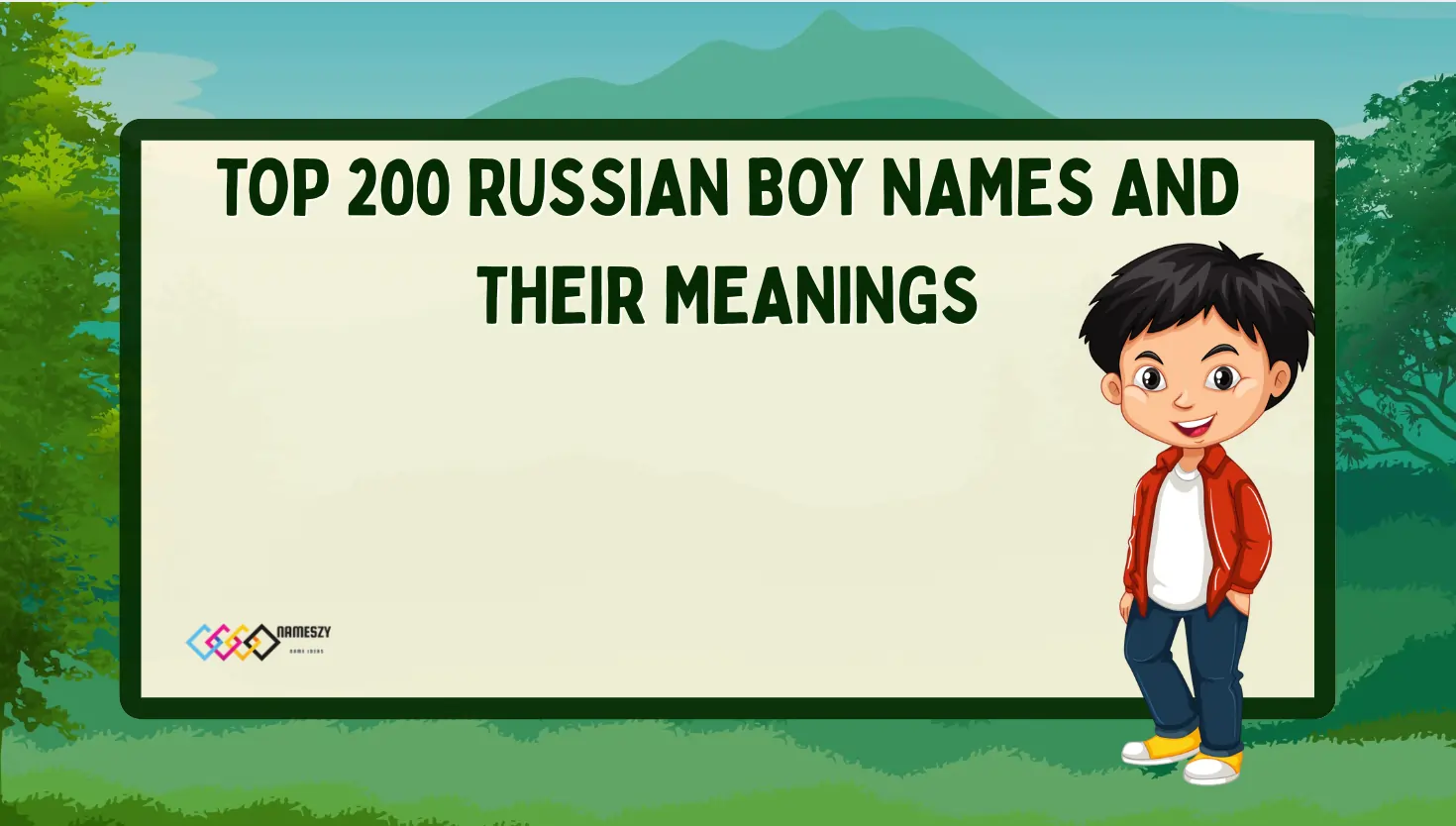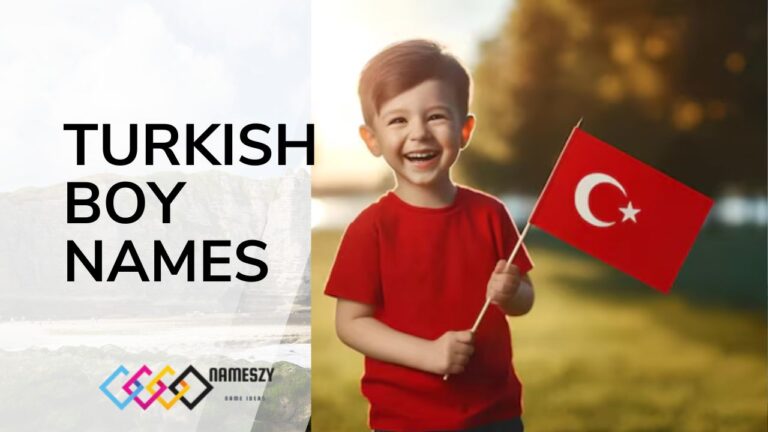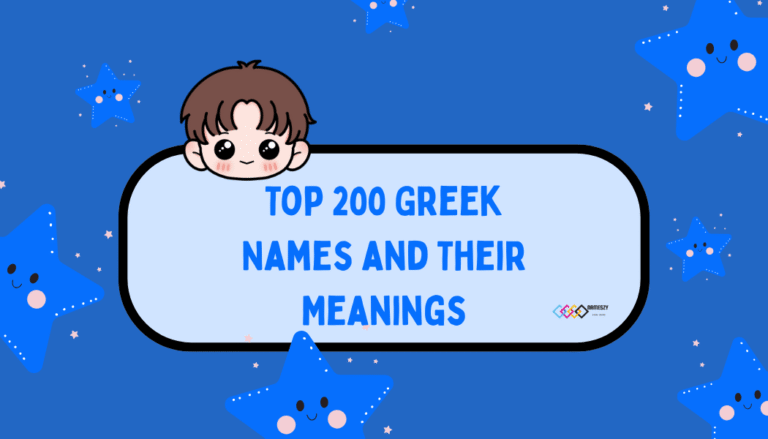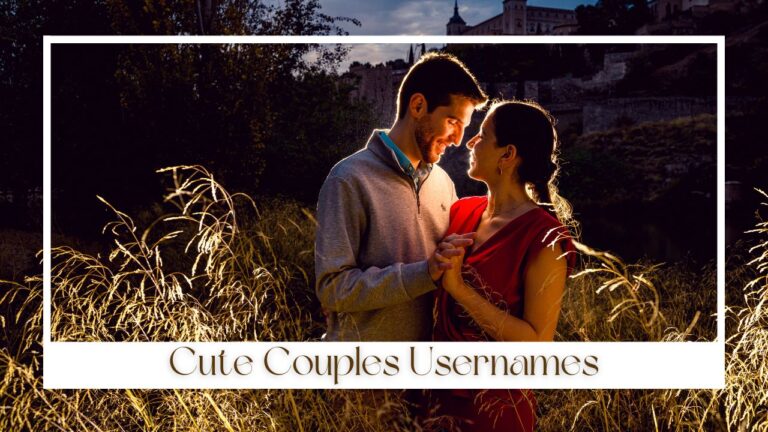Top 200 Russian Boy Names and Their Meanings
When it comes to choosing a name for a baby, parents often seek something meaningful and unique. Russian boy names are rich in cultural significance and history, making them an excellent choice for parents who want a name that stands the test of time. From traditional names that have been passed down through generations to more modern and contemporary names, Russian names carry deep meanings that reflect qualities of strength, wisdom, and nobility.
Names play a crucial role in Russian culture, often linked to religion, historical figures, or even nature. For example, names like Dmitry and Alexei are rooted in Russian history, while names like Maxim and Artem reflect modern trends and popular culture. The choice of a name can often be a reflection of the family’s values, aspirations, and connection to Russia’s rich heritage.
In this post, we will dive into the top 200 Russian boy names along with their meanings and origins. Whether you’re expecting a baby and are looking for a distinctive name or simply curious about Russian naming traditions, this guide offers an extensive list that can inspire you.
Overview of Russian Names
Russian names are more than just identifiers; they carry deep cultural, historical, and religious significance. In Russia, names are often chosen based on their meanings, with parents selecting names they hope will inspire particular traits, virtues, or even luck in their children’s lives. Russian names also serve as a link to history, with many reflecting the rich legacy of the country’s culture, religion, and tradition.
The importance of Russian boy names goes beyond personal identity, as they frequently tie into Russia’s vast religious and historical backdrop. Whether derived from Christian saints, notable historical figures, or elements of nature, the name chosen can tell a story about heritage, beliefs, and even aspirations for the future.
Common Themes in Russian Names
- Religious Influence:
Many Russian names have strong Christian roots, especially from Orthodox Christianity. Names like Dmitry, Nikolai, and Alexei come from saints and religious figures, embodying virtues like strength, wisdom, and faith. These names are not just a reflection of religious devotion but are often given with the hope that the child will inherit the same spiritual strength and moral character. - Historical Significance:
Russian names also have a strong connection to the country’s history and are often derived from historical figures, royalty, or political leaders. For instance, names such as Vladimir (after Grand Prince Vladimir of Kiev, who Christianized Russia), Boris (a ruler’s name), and Ivan (a name linked to famous rulers like Ivan the Terrible) are all part of Russia’s royal heritage. These names carry with them a sense of power, authority, and national pride. - Nature-Inspired Names:
Reflecting the connection to the land, nature, and environment, some Russian names are inspired by natural elements. For example, names like Lesha (meaning “forest”), Yuri (meaning “farmer” or “earth”), and Vladislav (meaning “glory to the land”) are associated with the beauty and strength of nature. This theme evokes a sense of connection to the earth, highlighting qualities like resilience, peace, and beauty.
In addition to these common themes, Russian boy names can vary in style, from traditional to modern, often influenced by regional preferences or familial customs. Whether choosing a name rooted in deep religious meaning, one that honors a historical figure, or a name inspired by nature, each carries a powerful message about heritage and identity.
For further understanding of the origins of Russian names, dive deeper into their history and significance in our detailed section on the Origins of Russian Names.
Categories of Russian Boy Names
Divide the 200 names into categories to make the content more scannable and user-friendly.
Traditional Russian Boy Names
Traditional Russian boy names often carry a sense of timelessness and history, with many rooted in Russian Orthodox Christianity, royal heritage, and deep cultural traditions. These names have been passed down through generations and continue to hold significance in Russian society today.
Some popular old-style traditional Russian names include Alexei, Dmitry, and Nikolai, each with its own powerful meaning and historical context. These names not only reflect the Russian cultural identity but also symbolize virtues like strength, wisdom, and faith.
| Name | Meaning |
|---|---|
| Alexei | Defender |
| Dmitry | Follower of Demeter (Goddess of harvest) |
| Nikolai | Victory of the people |
| Ivan | God is gracious |
| Vladimir | Ruler of the world |
| Boris | Battle glory |
| Mikhail | Who is like God? |
| Sergei | Servant, protector |
| Pavel | Small, humble |
| Artem | Unharmed, healthy |
| Andrei | Manly, brave |
| Maxim | The greatest |
| Yuri | Farmer, earth |
| Victor | Conqueror |
| Vladislav | Glory to the land |
| Gennady | Noble, generous |
| Leonid | Lion-hearted |
| Valery | Strong, healthy |
| Roman | Strong, man of strength |
| Evgeny | Noble, well-born |
| Fedor | God’s gift |
| Grigory | Vigilant, watchful |
| Kirill | Lordly, master |
| Nazar | God has protected |
| Vsevolod | Ruler of all |
| Igor | Warrior, fighter |
| Daniil | God is my judge |
| Maksim | The greatest |
| Yakov | Supplanter |
| Semyon | God has heard |
| Konstantin | Steadfast, constant |
| Egor | Watchful, vigilant |
| Timofey | Honoring God |
| Lev | Lion |
| Roman | Strong, man of strength |
| Denis | Follower of Dionysus |
| Pyotr | Rock, stone |
| Oleg | Holy, sacred |
| Vadim | Ruler, leader |
| Tikhon | Quiet, peaceful |
| Benedikt | Blessed, fortunate |
| Viktor | Victorious, conqueror |
| Rostislav | Glory of the tribe |
| Yevgeny | Noble, well-born |
| Aleksei | Defender |
| Anton | Priceless, invaluable |
| Makar | Blessed, happy |
| Tomas | Twin |
| Stanislav | Glory of the land |
| Valentin | Healthy, strong |
| Vladislav | Glory to the ruler |
| Miroslav | Peaceful glory |
Modern Russian Boy Names
In recent years, modern Russian names have evolved, reflecting the changing cultural, social, and global influences on Russian society. While traditional Russian names still hold strong, contemporary parents are increasingly opting for newer, trendy names that are seen as fresh and stylish, while still carrying deep significance. Names like Artem, Maxim, and Roman have become quite popular in Russia, representing a modern twist on the age-old tradition of choosing meaningful names.
Modern Russian names tend to be shorter, easier to pronounce internationally, and often have contemporary roots or international appeal. These names frequently draw inspiration from modern-day heroes, contemporary pop culture, or even global trends, offering a more cosmopolitan feel while still being distinctly Russian. For example, Maxim represents strength and greatness, while Artem evokes health and vitality. These names resonate with younger generations, who seek names that combine both tradition and modernity.
| Name | Meaning |
|---|---|
| Artem | Unharmed, healthy |
| Maxim | The greatest |
| Roman | Strong, man of strength |
| Maksim | The greatest |
| Daniil | God is my judge |
| Matvei | Gift of God |
| Vladislav | Glory to the ruler |
| Yuri | Farmer, earth |
| Vladislav | Glory of the ruler |
| Ivan | God is gracious |
| Denis | Follower of Dionysus |
| Kirill | Lordly, master |
| Semyon | God has heard |
| Konstantin | Steadfast, constant |
| Lev | Lion |
| Maksim | The greatest |
| Egor | Watchful, vigilant |
| Boris | Battle glory |
| Anton | Priceless, invaluable |
| Pavel | Small, humble |
| Mikhail | Who is like God? |
| Dmitry | Follower of Demeter (Goddess of harvest) |
| Nikolai | Victory of the people |
| Grigory | Vigilant, watchful |
| Roman | Strong, man of strength |
| Oleg | Holy, sacred |
| Rostislav | Glory of the tribe |
| Yegor | Watchful, vigilant |
| Tomas | Twin |
| Yakov | Supplanter |
| Semyon | God has heard |
| Maksim | The greatest |
| Viktor | Victorious, conqueror |
| Leonid | Lion-hearted |
| Viktor | Victorious, conqueror |
| Aleksei | Defender |
| Tikhon | Quiet, peaceful |
| Arseniy | Courageous |
| Fedor | God’s gift |
| Benedikt | Blessed, fortunate |
| Yevgeny | Noble, well-born |
| Orest | Mountain-dweller |
| Maksim | The greatest |
| Stanislav | Glory of the land |
| Vladimir | Ruler of the world |
| Benedikt | Blessed, fortunate |
| Vladislav | Glory to the ruler |
| Alexandr | Defender of the people |
| Ilya | My God is Yahweh |
| Timofey | Honoring God |
Names Inspired by Nature
Nature-inspired Russian names are deeply tied to the land, its elements, and the natural world. These names not only reflect the beauty and majesty of nature but also convey the strength and resilience associated with the earth, forests, and rivers. Many Russian names are linked to the natural environment, from Lesha, meaning “forest,” to Vladimir, which translates to “ruler of the world,” with a connection to the land and nature.
These names often evoke images of vast landscapes, strong mountains, serene rivers, and lush forests, creating a sense of harmony with the environment. Whether you choose a name that reflects the beauty of the outdoors or one that symbolizes the power of nature, nature-inspired Russian names have an enduring appeal.
| Name | Meaning |
|---|---|
| Lesha | Forest |
| Vladimir | Ruler of the world (connected to land and nature) |
| Yuri | Farmer, earth |
| Vladislav | Glory to the land |
| Oleg | Holy, sacred (often associated with nature) |
| Rostislav | Glory of the tribe (nature-connected) |
| Denis | Follower of Dionysus (god of wine and nature) |
| Maksim | The greatest, often associated with natural power |
| Artem | Unharmed, healthy (symbolizing vitality) |
| Timofey | Honoring God (god of nature) |
| Yakov | Supplanter (symbolizing growth) |
| Sergey | Servant (often associated with the earth) |
| Igor | Warrior, fighter (strong like nature) |
| Lev | Lion (representing strength, often linked to nature) |
| Evgeny | Noble, well-born (symbolizing nobility from nature) |
| Roman | Strong, man of strength (earthy, grounded) |
| Boris | Battle glory (symbolizing nature’s power) |
| Stanislav | Glory of the land |
| Grigory | Vigilant (watchful, like nature) |
| Mikhail | Who is like God? (symbolizes strength and endurance) |
| Tikhon | Quiet, peaceful (like a calm nature) |
| Konstantin | Steadfast, constant (like the steady earth) |
| Gennady | Noble, generous (nature’s generosity) |
| Yevgeny | Noble, well-born (in harmony with nature) |
| Pyotr | Rock, stone (symbolizing stability in nature) |
| Vsevolod | Ruler of all (reflecting the power of nature) |
| Orest | Mountain-dweller (tied to nature) |
| Benedikt | Blessed, fortunate (connected to nature’s bounty) |
| Maksim | The greatest (reflects nature’s grand power) |
| Alexei | Defender (strong like nature’s forces) |
| Roman | Strong, man of strength |
| Viktor | Victorious, conqueror (like nature overcoming) |
| Fedor | God’s gift (nature’s divine blessing) |
| Vadim | Ruler, leader (strong and resilient like nature) |
| Semyon | God has heard (nature’s voice) |
| Anton | Priceless, invaluable (nature’s treasures) |
| Igor | Warrior, fighter (strength, like nature) |
| Vladislav | Glory of the ruler (nature’s dominance) |
| Artemiy | Health, vitality (symbolizing the vitality of nature) |
| Viktor | Victorious, conqueror (nature’s triumph) |
| Roman | Strong, man of strength |
| Vladislav | Glory to the ruler (nature’s strength) |
| Valery | Strong, healthy (like nature’s resilience) |
| Leonid | Lion-hearted (bravery inspired by nature) |
| Nikita | Victory (like nature’s triumphs) |
| Kirill | Lordly, master (master of nature) |
| Orest | Mountain dweller (symbolizing nature’s endurance) |
| Yuriy | Farmer, earth |
Historical & Royal Russian Names
Russian royal names are deeply intertwined with the country’s rich history, often drawing inspiration from its monarchs, powerful leaders, and significant historical figures. These names carry an air of authority, strength, and legacy, much like the royal figures and leaders they represent.
From the mighty Ivan (like Ivan the Terrible) to the valiant Boris (honoring the first Christian ruler of Russia), Russian royal names reflect the profound impact these figures have had on Russian culture, politics, and history.
Throughout Russian history, many names have been associated with the ruling class, symbolizing power, leadership, and divine protection. Names like Vladislav, Alexandr, and Dmitry have long been a symbol of nobility and authority.
These names not only recall the glorious history of Russian dynasties but also evoke admiration for those who ruled over vast empires. They remain timeless and are often chosen by families to pass on a legacy of strength, nobility, and dignity.
| Name | Meaning |
|---|---|
| Ivan | God is gracious (referring to Ivan the Terrible) |
| Boris | Battle glory (also refers to Boris Godunov, a Tsar of Russia) |
| Vladislav | Glory to the ruler |
| Dmitry | Follower of Demeter (Goddess of harvest) |
| Vladimir | Ruler of the world (Grand Prince Vladimir of Kiev) |
| Alexandr | Defender of the people (named after Alexander Nevsky, a prince and military leader) |
| Mikhail | Who is like God? (Mikhail Romanov, Tsar of Russia) |
| Nikolai | Victory of the people (Emperor Nicholas II of Russia) |
| Pyotr | Rock, stone (Peter the Great, Tsar of Russia) |
| Yaroslav | Famed with glory (Yaroslav the Wise, Grand Prince of Kiev) |
| Vsevolod | Ruler of all |
| Sergei | Servant, protector |
| Leonid | Lion-hearted |
| Aleksei | Defender (Alexei Romanov, Tsar of Russia) |
| Roman | Strong, man of strength |
| Konstantin | Steadfast, constant |
| Artem | Unharmed, healthy |
| Grigory | Vigilant, watchful |
| Timofey | Honoring God |
| Daniil | God is my judge |
| Viktor | Victorious, conqueror |
| Daniil | God is my judge |
| Benedikt | Blessed, fortunate |
| Fedor | God’s gift |
| Stanislav | Glory of the land |
| Andrei | Manly, brave |
| Benedikt | Blessed, fortunate |
| Ilya | My God is Yahweh |
| Maksim | The greatest |
| Valery | Strong, healthy |
| Yuri | Farmer, earth |
| Tikhon | Quiet, peaceful |
| Evgeny | Noble, well-born |
| Viktor | Victorious, conqueror |
| Igor | Warrior, fighter |
| Vladislav | Glory to the ruler |
| Semyon | God has heard |
| Yegor | Watchful, vigilant |
| Vadim | Ruler, leader |
| Oleg | Holy, sacred |
| Lev | Lion |
| Vladislav | Glory to the ruler |
| Grigori | Vigilant, watchful |
| Rostislav | Glory of the tribe |
| Maksim | The greatest |
| Nikita | Victory (like Nikita Sergeyevich Khrushchev, Soviet leader) |
| Tomas | Twin |
| Dmitriy | Follower of Demeter (Greek goddess of harvest) |
| Artemiy | Health, vitality (symbolizing the vitality of Russian leaders) |
Why Russian Name are Important
Russian names are deeply important for several cultural, historical, and social reasons. In Russia, names are not merely identifiers but carry profound meanings that reflect personal identity, family heritage, and connections to the nation’s rich history and traditions. Here’s why Russian names are so significant:
Cultural and Religious Significance
Russian names often have ties to Orthodox Christianity and Russian folklore, reflecting the nation’s strong religious and cultural values. Many Russian names, especially those given to boys, are derived from saints or religious figures. For example, Dmitry, Alexei, and Ivan all have connections to Russian Orthodox saints. These names are chosen not only for their meanings but also as a way to honor religious traditions and maintain a connection to the faith.
Historical Legacy
Many Russian names are linked to the country’s history, royal dynasties, and famous historical figures. Names like Vladimir, Boris, and Nikolai are associated with the Russian tsars, grand princes, and other significant leaders in Russia’s past. These names carry a sense of national pride, and families may choose them to honor past heroes or leaders who shaped Russia’s history.
Family Tradition and Continuity
In Russian culture, names are often passed down through generations as a way to maintain family traditions and continuity. It’s common to name a child after a grandparent or ancestor, ensuring that the family legacy continues. These names also reflect the importance of lineage and respect for one’s elders, which is a deeply ingrained value in Russian society.
Meaning and Symbolism
Names in Russia are often chosen based on their meanings, which are believed to influence the character or destiny of the person. For example, Maxim means “the greatest,” reflecting aspirations for strength and greatness, while Sergei means “servant” or “protector,” signifying a caring and loyal nature. Parents choose names with meanings that resonate with their hopes and dreams for their child.
Connection to Nature and the Land
Many Russian names have deep connections to nature, reflecting the country’s vast landscapes and natural beauty. Names like Lesha (meaning “forest”) and Vladimir (meaning “ruler of the world,” associated with land and nature) are rooted in the environment, evoking images of Russia’s expansive forests, rivers, and mountains. These names reflect a connection to the land and its cultural significance.
Social Identity and Community
In Russia, a person’s name can influence their social identity and how they are perceived by others. Certain names carry specific connotations or associations with respect, authority, or social class. For instance, Nikolai or Dmitry may evoke a sense of nobility or historical importance, while more modern names like Artem or Maxim might reflect current cultural trends.
Personal Identity and Pride
For many Russians, their name is a source of personal pride and identity. It connects them to their heritage, history, and family. In a society where names often carry historical or religious significance, having a name tied to a cultural tradition can instill a sense of belonging and pride in one’s roots.
Frequently Asked Questions
What are the most popular Russian boy names?
Some of the most popular Russian boy names include Dmitry, Ivan, Maxim, Alexei, Artem, and Roman. These names have stood the test of time in Russian culture and are commonly chosen for their deep meanings and historical significance.
What do Russian names mean?
Russian names often carry deep cultural, religious, and historical meanings. For example:
- Alexei means “defender.”
- Dmitry is derived from Demeter, the goddess of harvest.
- Vladimir means “ruler of the world.”
- Boris translates to “battle glory.”
The meanings of these names are deeply tied to qualities like strength, faith, and leadership.
Are Russian names linked to religion?
Yes, many Russian names are derived from Orthodox Christian saints, reflecting the nation’s strong religious traditions. Names such as Dmitry, Vladimir, and Nikolai are inspired by saints and religious figures, and are often given with the hope that the child will embody the same virtues.
Are there nature-inspired Russian boy names?
Yes, nature-inspired Russian names are quite common. Names like Lesha (meaning “forest”) and Vladimir (meaning “ruler of the world” in relation to nature) are examples of how Russian names can be tied to the natural world. These names often reflect a deep connection to the land, animals, and the environment.
What are some modern Russian boy names?
Some popular modern Russian names include Artem, Maxim, Roman, and Maksim. These names are trendy and often have shorter, more modern sounds while still retaining their cultural significance. They are commonly used in contemporary Russian society.
What are Russian royal names?
Russian royal names are inspired by Russia’s historical leaders, monarchs, and tsars. Some well-known royal names include Ivan (as in Ivan the Terrible), Boris (after Boris Godunov), Vladimir (Grand Prince Vladimir of Kiev), and Nikolai (Emperor Nicholas II of Russia). These names carry historical and noble connotations and are often chosen to reflect power and legacy.
Can I use a Russian name if I’m not from Russia?
Yes, many people from outside Russia choose Russian names because they carry deep meanings and cultural significance. Russian names like Alexei, Artem, and Nikolai have gained international popularity and are used by parents across the world who want to give their children strong, meaningful names with historical roots.
Are Russian names gender-specific?
Yes, Russian names are typically gender-specific. For example:
- Boys: Dmitry, Alexei, Maxim, Vladimir
- Girls: Anastasia, Ekaterina, Olga, Irina
However, some names like Sasha can be used for both genders in Russia, but this is more of an exception than the rule.
How do Russian names reflect cultural heritage?
Russian names are often tied to the country’s history, traditions, and religion. They may be inspired by saints, historical figures, or nature. By giving a child a Russian name, parents often wish to preserve and honor their cultural roots and family legacy, especially if they are from Russian heritage.
Are there any famous Russian figures whose names are popular?
Yes, several names inspired by famous Russian figures are widely used. Vladimir (after Grand Prince Vladimir of Kiev), Boris (after Tsar Boris Godunov), and Dmitry (after Dmitry Donskoy, a famous Russian prince) are just a few examples. These names carry historical weight and are seen as symbols of strength, leadership, and national pride.
Conclusion
Choosing a name for your child is a deeply personal decision, and when it comes to Russian boy names, the significance goes far beyond just a label. These names are rich in meaning, often reflecting the cultural, religious, and historical heritage of Russia. From names inspired by saints and historical figures like Dmitry and Ivan to those that connect to nature and strength like Vladimir and Lesha, Russian boy names carry with them centuries of tradition, symbolism, and pride.
In Russian culture, a name can influence not only a person’s identity but also their destiny, as many names are chosen based on the qualities and virtues they represent. Whether you are drawn to traditional Russian names with deep historical roots, modern Russian names that are fresh and trendy, or nature-inspired names that evoke the beauty and strength of the land, each name has its own unique story and significance.
We encourage you to explore the list of 200 Russian boy names and discover the perfect name that resonates with you and your family. Whether you’re looking for a name that honors Russian culture or simply want to choose something meaningful and timeless, these names provide a wide range of options that reflect strength, wisdom, and legacy. Let the name you choose become a lasting connection to Russia’s rich cultural heritage.







